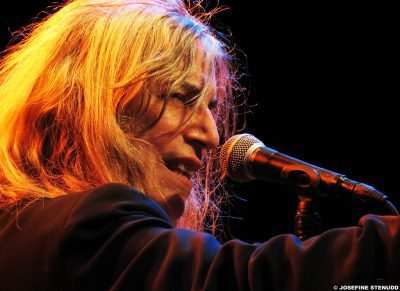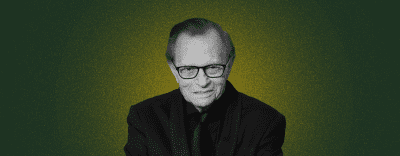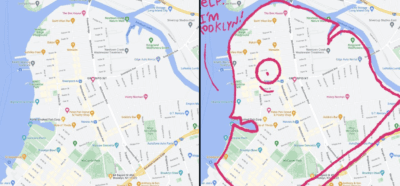The cast of 'Stereophonic' (Photo by Julieta Cervantes)
‘Stereophonic’ almost didn’t make it to the stage. Now it’s made Broadway history
Nominated in a record-breaking 13 Tony categories, the production took home five awards Sunday, including Best Play
The Broadway show “Stereophonic” dominated this weekend’s 77th Tony Awards, bringing home five honors, including Best Play and Best Direction of a play. In all, “Stereophonic” went into the evening with 13 nominations in 10 categories (a record for a non-musical play).
But it’s sort of a miracle that the play even exists.
“Stereophonic” took collaborators David Adjmi (book), Will Butler (music and lyrics), and Daniel Aukin (director) over 10 years to create.
“There was lots of forward momentum,” says Aukin, “And then there was lots of backward momentum, and there was a lot of hopelessness.”
In addition to Best Play for Adjmi and Direction of a Play for Aukin, “Stereophonic” netted Tonys for Featured Actor for Will Brill, Sound Design for Ryan Rumery, and Scenic Design for David Zinn.
“Stereophonic” mines the agony and ecstasy of the creative process by focusing on an up-and-coming rock band recording a new album in the mid-1970s (it’s not Fleetwood Mac, but it’s also not not Fleetwood Mac). The pressures threaten to trigger either a breakup — or a breakthrough.
For its creators, a long development period and the Covid years were bumps in the road, but ultimately, those delays let them breathe a complete vision into life — a metaphor Adjmi often evokes to explain their process.
But the trio tells Brooklyn Magazine their ever-growing vision proved daunting over and over again.
“The magnitude of the production became clearer as we went,” says Adjmi. “We wanted a real, functioning studio on stage and to be able to play back stuff live.”
To make it happen, they assembled a happy band of theatrical outsiders and industry pros who gave it the seriousness and rigor needed to create the show.
It also actually helped that the Screen Actors Guild was on strike when “Stereophonic” was preparing to debut at Playwrights Horizons in Manhattan last October.
Theater actors are organized under a different union, the Actors’ Equity Association, and with SAG on strike, the play’s cast was totally focused on the show. “It’s interesting to be in the theater and have them be like, ‘Well, this is the only thing going, so let’s dig in,’” says Butler.
“Stereophonic” closed in December and reopened on Broadway at The Golden Theatre in April to glowing reviews, some calling it an instant classic. The drama has extended its run through January 5.
Brooklyn Magazine spoke with David Adjmi, Will Butler, and Daniel Aukin on the eve of the 77th Tony Awards about being catapulted from theater outsiders to becoming the most-nominated non-musical play in Broadway history.

The cast of ‘Stereophonic’ (Photo by Julieta Cervantes)
The interview was edited and condensed for length and clarity.
“Stereophonic” feels like it came out of nowhere because it’s so different from the usual Broadway show. Now you’re going into the Tonys this weekend with a record 13 nominations. With all of the show’s success, do you feel welcome on Broadway? Or has anyone given you the side-eye?
David Adjmi: It’s hard to know because we don’t really know them. We meet people at these Broadway events that we go to and they’re all so sweet and it’s a very beautiful cohort. Everyone couldn’t be nicer and more gracious and more supportive of each other. So in terms of the theater people that we are interacting with, from my vantage they are amazing. But I don’t know if that’s the Broadway community. I guess that it is. They seem really cool.
Will Butler: People really love David. People are talking to me about how much they love David.
Adjmi: What?
Butler: Lila Neugebauer loves you. Everyone’s so lovely. They’re like, “It’s a bunch of weirdos. Great! A bunch of weirdos.”
The show closed at Playwrights Horizons in December and opened at The Golden Theatre in April. What was the team doing in the interim?
Daniel Aukin: David and I spent a bunch of time looking at the story because you get as far as you get each time you do the show, and then you want to touch base about what we can do to sharpen things. Where can we tell the story better? So we spent a bunch of time talking about that. Everybody’s a little older, everybody’s had more life. Everybody’s had a chance to process and so everybody comes to it slightly differently. A lot of things really deepened the second time through.
Butler: Our music director, Justin Craig, the cast made, and me the cast recording starting in February.
How long did it take to make?
Butler: We were in the studio for two-and-a-half, three days, and then a lot of work afterward for me, Justin, and the mixer from February through April. It was good for the cast. They had to dig in musically and they had to really listen to themselves on tape.
Daniel, did your direction at all change given the new theater?
Aukin: It got much better. I became a better director. [Laughs.] You just come to it freshly, you look at what’s in front of you, and talk to your collaborators. You follow your intuitions. It’s such a talented cast so you see where they take you.
I just spent some time with DJ Westend and he closed his set with a remix of “Dreams.” Last Fall Amazon had their hit series “Daisy Jones and The Six,” and now your play is breaking records. What is it about the era of Fleetwood Mac’s music that’s so appealing to people?
Adjmi: I was born in the ‘70s and I sort of have memories of it. It was a very different time. There was something about the textures of that period and the way people lived. There was still something very beautiful about the fact that global capitalism hadn’t completely taken hold.
People who were in bands during this period had a lot more latitude and freedom to make records and take their time to figure out their art. Labels would often give people a few chances. They would get a three-record deal to evolve over however many years. Now everything is about speed and corporatization and merch. There was something quite charming to me about the fact that they could be kind of like a family still. That the business aspect hadn’t completely usurped the process.
Now, of course, there were very many toxic elements to that period in terms of gender politics and everything else. I don’t feel like I see it through rose-colored glasses but I like to anatomize that moment because it feels so close but also so far. I think the homespun, funkier, earthier sort of quality to some of the music in that period like that might be appealing to people.
Will, do you relate to what David’s saying about the economic constraints of being in a band in 2024?
Butler: I’m on Merge Records and they’re so intensely lovely and it’s not hyper-capitalist, but like the world around it is pretty barren. My friends who are in bands saw the play and loved it because it felt so real. They were talking about this scene in the play where Columbia called and tripled the budget so they didn’t have to be out of the studio in two weeks. Now when a label calls to triple your budget, you don’t have to be out at 2 p.m. you can stay until 6 p.m. [Laughs.]
In the ‘70s, you had engineers who came up in the system and were scientists and knew how to make things sound. Now it’s a little more DIY and there are good things to that, but it also doesn’t sound as good in certain ways. We’ve lost a lot of craft in the making of a record. You need some sort of patronage and now the industry as a whole is much more extractive rather than like planting a field and helping it grow. It’s just like trying to dig it out of the earth.
David, what inspirations did you take for the story? Did you draw from Will’s experiences in Arcade Fire and Sister Squares?
Adjmi: Once I had a draft, I would ask if it felt real to him. I think when we first met I was pretty shy around Will. We didn’t really know each other. It was really like a Hasidic couple, where you go, “Okay, not we’re married, I guess.”
Aukin: I had to make you go walk and talk. I was like, “These two have to talk so go away and talk.”
Adjmi: I was like, “Am I allowed to talk?” I was pretty shy in the beginning. As I went on I got a little bit more comfortable and I would ask, “Does this feel true to you? Tell me if it doesn’t. What are the things that I’m missing?” I really tried to go over it with a fine-tooth comb and make sure that this wasn’t cosplay.
Butler: I remember giving notes on some pretty fine-grained technical stuff. But the emotional landscape, David would ask if it feels accurate, and I would be like, “Yes it does. Why are you showing this to me? It’s too real.”
Adjmi: It’s kind of crazy how as we kept having conversations with people who had expertise, that would change the shape of the play, which would change the dynamics, which would change everything. It was this very beautiful respiration between collaborators. I think you can feel that that’s why this play has a very special energy.
You might also like 


























